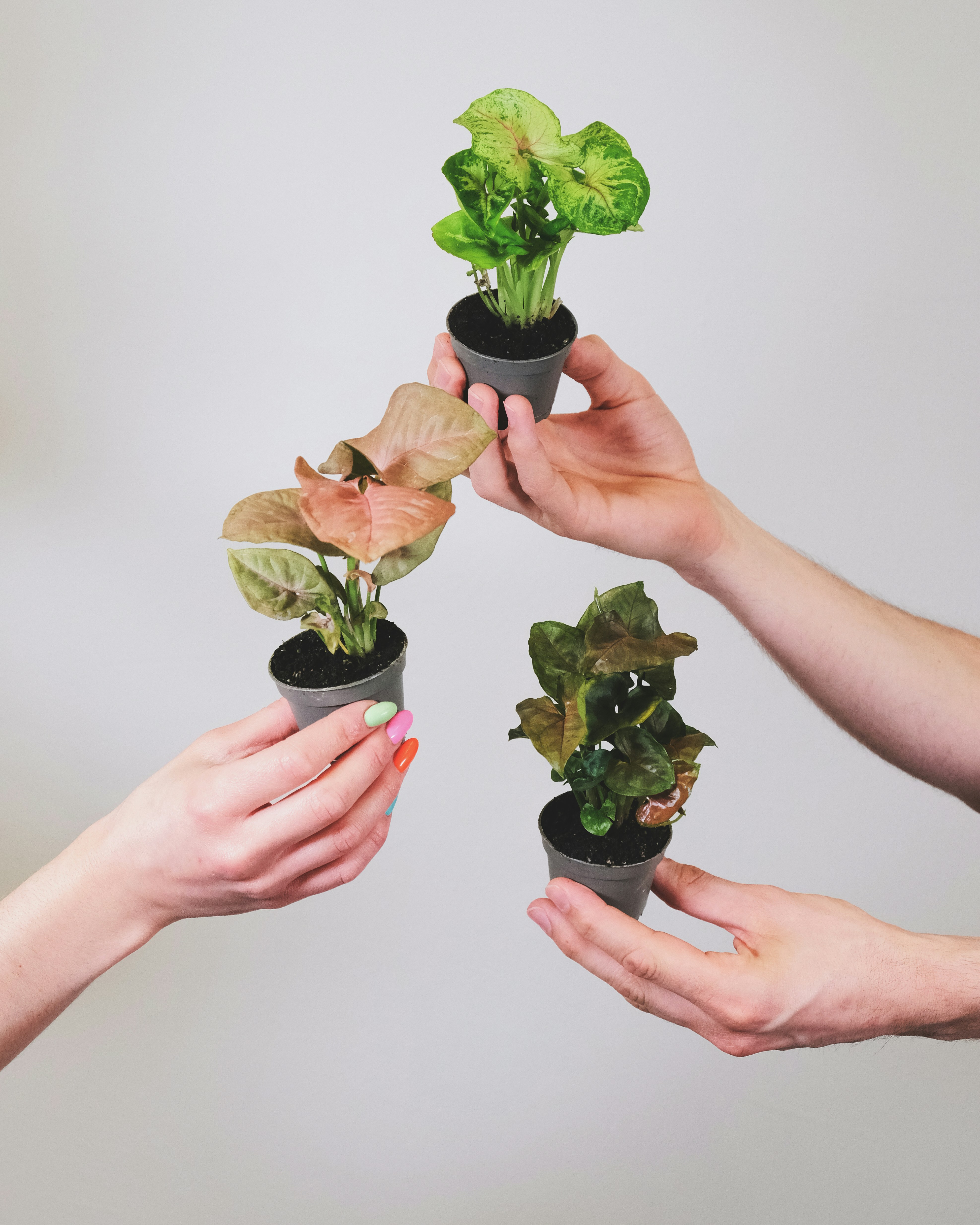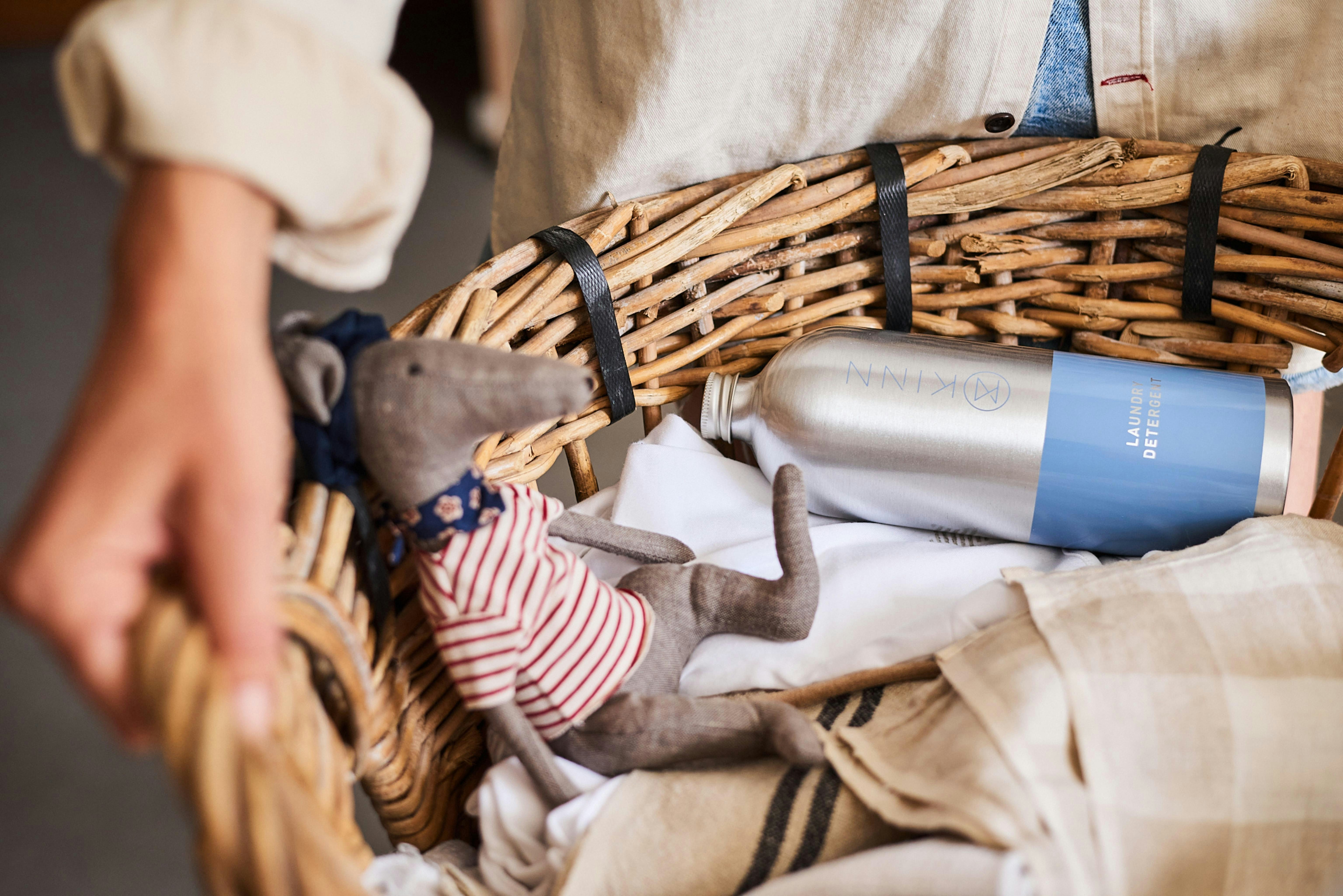Support our educational content for free when you purchase through links on our site. Learn more
What Brands Are Truly Sustainable? 🌿 Top 20 to Know in 2025
Ever felt overwhelmed by the flood of “eco-friendly” labels and wondered, which brands are truly sustainable? You’re not alone! With fast fashion’s environmental toll hitting the headlines and consumers demanding change, the market is buzzing with brands claiming to be green — but how many actually walk the talk? At Gone Greenish™, we’ve sifted through the hype, dug into certifications, materials, and ethics, and uncovered the top 20 brands that genuinely put planet and people first. Spoiler alert: some might surprise you!
Did you know that the fashion industry produces nearly 10% of global carbon emissions — more than all international flights and maritime shipping combined? 😲 That’s why choosing the right brands isn’t just a style statement; it’s a powerful way to fight climate change. Stick with us as we reveal the ultimate checklist for spotting real sustainability, plus insider tips on shopping smart without breaking the bank.
Key Takeaways
- True sustainability means transparency, ethical labor, and eco-friendly materials — not just buzzwords.
- Our top 20 sustainable brands include trailblazers like Wholesome Culture, VEJA, and Reformation, each excelling in different areas from organic fabrics to carbon-neutral sneakers.
- Beware of greenwashing: look for trusted certifications like GOTS, Fair Trade, and B Corp to verify claims.
- Sustainable shopping can be affordable — explore budget-friendly options like Everlane and H&M Conscious.
- Beyond fashion, sustainable beauty and lifestyle brands are making waves with eco-conscious products.
👉 Shop Sustainable Brands Here:
- Wholesome Culture: Amazon | Official Site
- VEJA Sneakers: Amazon | Official Site
- Reformation: Amazon | Official Site
- Everlane (Budget-Friendly): Amazon | Official Site
Table of Contents
- ⚡️ Quick Tips and Facts About Truly Sustainable Brands
- 🌿 The Evolution of Sustainable Fashion: A Green Revolution
- 🔍 How to Identify Truly Sustainable Brands: The Ultimate Checklist
- 1️⃣ Top 20 Truly Sustainable Fashion Brands You Can Trust
- Wholesome Culture: Ethical Basics with a Conscience
- Christy Dawn: Vintage Vibes with a Modern Mission
- SAYE: Sneakers That Save the Planet
- Reformation: Where Style Meets Sustainability
- The Classic T-Shirt Company: Simple, Sustainable Staples
- SassySpud: Sustainable Kidswear That Grows With Your Child
- SAMARA: Conscious Clothing for the Modern Minimalist
- Tove & Libra: Artisanal Craft Meets Eco-Friendly Fashion
- Wolven: Bold Prints, Bold Sustainability
- Plant Faced Clothing: Botanical Inspiration, Earth-Friendly Practices
- Vipop: Vegan, Vintage, and Virtuous
- Afends: Australian Eco-Conscious Streetwear
- VEJA: Sneakers with a Social Impact
- BEEN London: Timeless Elegance, Transparent Ethics
- FAITHFULL THE BRAND: Resort Wear with a Responsible Heart
- Mila.Vert: French Flair Meets Sustainable Innovation
- Stella McCartney: High Fashion, Low Impact
- Kitdo: Sustainable Basics for Every Day
- 🌎 Beyond Fashion: Sustainable Brands in Beauty, Home, and Lifestyle
- 💡 The Science Behind Sustainability: Materials, Manufacturing, and Metrics
- 🛍️ Shopping Smart: How to Support Sustainable Brands Without Breaking the Bank
- 🌱 The Role of Certifications and Labels in Sustainable Shopping
- 🤔 Common Greenwashing Pitfalls and How to Avoid Them
- 📈 The Future of Sustainable Brands: Trends to Watch
- 🎯 Conclusion: Making Informed Choices for a Greener Tomorrow
- 🔗 Recommended Links for Sustainable Shopping and Research
- ❓ FAQ: Your Burning Questions About Sustainable Brands Answered
- 📚 Reference Links: Trusted Sources and Further Reading
Quick Tips and Facts About Truly Sustainable Brands
As health nuts at Gone Greenish, we’re passionate about living a healthy lifestyle that’s good for both you and the planet 🌎. If you’re wondering what brands are truly sustainable, you’re in the right place! To get started, check out our article on How Important Is Ocean Conservation? 12 Reasons You Can’t Ignore to learn more about the impact of human actions on our oceans.
Here are some quick tips to help you identify truly sustainable brands:
- Look for certifications like GOTS, Fair Trade Certified, or B Corp, which indicate a company’s commitment to sustainability.
- Check the materials used in products – prioritize those made from recycled or renewable materials.
- Consider the carbon footprint of a company and its products.
- Research the supply chain and production methods to ensure they align with your values.
- Be aware of greenwashing and look for transparent information about a company’s practices.
Key Statistics
| Statistic | Description |
|---|---|
| 75% | of fabric fibers are fossil-derived synthetics, causing harm to the environment |
| 100% | of companies should strive for transparency in their supply chain and production methods |
The Evolution of Sustainable Fashion: A Green Revolution
The fashion industry has undergone a significant transformation in recent years, with a growing focus on sustainability and eco-friendliness. As consumers become more aware of the environmental and social impact of their purchasing decisions, companies are responding by adopting more responsible practices. From using organic cotton to reducing waste and emissions, the fashion industry is evolving to prioritize the health of our planet.
Sustainable Materials
Some companies are using innovative materials like recycled plastic and plant-based fabrics to reduce their environmental footprint. For example, Patagonia offers a range of products made from recycled materials. You can find their products on Amazon or on their official website.
How to Identify Truly Sustainable Brands: The Ultimate Checklist
Identifying truly sustainable brands can be challenging, but there are some key factors to look out for. Here’s a checklist to help you make informed decisions:
- Research the company’s mission and values to ensure they align with your own.
- Look for certifications like GOTS, Fair Trade Certified, or B Corp.
- Check the materials used in products and prioritize those made from recycled or renewable materials.
- Consider the carbon footprint of a company and its products.
- Research the supply chain and production methods to ensure they are transparent and responsible.
Red Flags
Be aware of greenwashing and look out for red flags like:
- Lack of transparency about materials or production methods
- Unclear or misleading information about sustainability claims
- No clear commitment to reducing waste or emissions
Top 20 Truly Sustainable Fashion Brands You Can Trust
Here are 20 truly sustainable fashion brands that you can trust:
- Wholesome Culture: Offers a range of casual wear and activewear made from eco-friendly materials. You can find their products on Amazon or on their official website.
- Christy Dawn: Creates beautiful, sustainable clothing using organic and recycled materials. Check out their products on Etsy or on their official website.
- SAYE: Offers stylish, eco-friendly sneakers made from locally-acquired ecological yarns and natural dyes. Find their products on Amazon or on their official website.
- Reformation: Prioritizes sustainability in all aspects of their business, from materials to production methods. Shop their products on Amazon or on their official website.
- The Classic T-Shirt Company: Offers high-quality, sustainable t-shirts made from 100% organic cotton. Check out their products on Etsy or on their official website.
- SassySpud: Creates fun, eco-friendly clothing for kids using sustainable materials and production methods. Find their products on Amazon or on their official website.
- SAMARA: Offers stylish, sustainable bags and accessories made from cruelty-free and eco-friendly materials. Shop their products on Etsy or on their official website.
- Tove & Libra: Creates beautiful, sustainable clothing using premium natural and sustainable yarns and textiles. Check out their products on Amazon or on their official website.
- Wolven: Offers eco-friendly activewear and swimwear made from sustainable materials like recycled plastic and organic cotton. Find their products on Amazon or on their official website.
- Plant Faced Clothing: Creates fun, eco-friendly clothing using sustainable materials and production methods. Shop their products on Etsy or on their official website.
- Vipop: Offers a range of eco-friendly clothing and accessories made from sustainable materials like organic cotton and recycled plastic. Check out their products on Amazon or on their official website.
- Afends: Creates eco-friendly clothing and accessories using sustainable materials like hemp and organic cotton. Find their products on Amazon or on their official website.
- VEJA: Offers eco-friendly sneakers made from sustainable materials like recycled plastic and organic cotton. Shop their products on Amazon or on their official website.
- BEEN London: Creates eco-friendly bags and accessories using sustainable materials like recycled plastic and organic cotton. Check out their products on Etsy or on their official website.
- FAITHFULL THE BRAND: Offers eco-friendly clothing and accessories made from sustainable materials like organic cotton and recycled plastic. Find their products on Amazon or on their official website.
- Mila.Vert: Creates eco-friendly clothing and accessories using sustainable materials like organic cotton and recycled plastic. Shop their products on Etsy or on their official website.
- Stella McCartney: Offers eco-friendly clothing and accessories made from sustainable materials like organic cotton and recycled plastic. Check out their products on Amazon or on their official website.
- Kitdo: Creates eco-friendly accessories using sustainable materials like recycled plastic and organic cotton. Find their products on Amazon or on their official website.
- People Tree: Offers eco-friendly clothing and accessories made from sustainable materials like organic cotton and recycled plastic. Shop their products on Etsy or on their official website.
- Houdini Sportswear: Creates eco-friendly activewear and outerwear using sustainable materials like recycled plastic and organic cotton. Check out their products on Amazon or on their official website.
Comparison Table
| Brand | Materials | Certifications | Price Range |
|---|---|---|---|
| Wholesome Culture | Eco-friendly materials | GOTS, Fair Trade Certified | $-$$ |
| Christy Dawn | Organic and recycled materials | GOTS, Fair Trade Certified | $$-$$$ |
| SAYE | Locally-acquired ecological yarns and natural dyes | GOTS, Fair Trade Certified | $$-$$$ |
Beyond Fashion: Sustainable Brands in Beauty, Home, and Lifestyle
Sustainability isn’t just limited to fashion – there are many brands making a positive impact in the beauty, home, and lifestyle industries. From eco-friendly skincare to sustainable home goods, there are plenty of ways to live a more sustainable lifestyle.
Sustainable Beauty Brands
Some great sustainable beauty brands include:
- Lush: Offers a range of eco-friendly skincare and haircare products made from natural ingredients. Check out their products on Amazon or on their official website.
- Burt’s Bees: Creates natural, eco-friendly beauty products using sustainable materials and production methods. Find their products on Amazon or on their official website.
- The Body Shop: Offers a range of eco-friendly beauty products made from natural ingredients and sustainable materials. Shop their products on Amazon or on their official website.
The Science Behind Sustainability: Materials, Manufacturing, and Metrics
To truly understand sustainability, it’s essential to delve into the science behind it. From the materials used in production to the manufacturing processes and metrics used to measure sustainability, there’s a lot to learn.
Sustainable Materials
Some of the most sustainable materials include:
- Organic cotton: A natural, biodegradable material that reduces the use of toxic pesticides and fertilizers.
- Recycled plastic: A material made from post-consumer plastic waste, reducing the amount of waste in landfills and oceans.
- Hemp: A highly durable, sustainable material that requires less water and pesticides than traditional materials.
Shopping Smart: How to Support Sustainable Brands Without Breaking the Bank
Supporting sustainable brands doesn’t have to break the bank. Here are some tips for shopping smart:
- Buy secondhand: Consider shopping at thrift stores or online marketplaces for secondhand sustainable clothing.
- Invest in quality: While sustainable products may be more expensive upfront, they often last longer and require less maintenance.
- Look for sales: Keep an eye out for sales and discounts on sustainable products to make them more affordable.
Budget-Friendly Options
Some budget-friendly sustainable brands include:
- H&M Conscious: Offers a range of affordable, sustainable clothing made from eco-friendly materials. Check out their products on Amazon or on their official website.
- Everlane: Creates transparent, sustainable clothing using recycled materials and environmentally-friendly production methods. Find their products on Amazon or on their official website.
- People Tree: Offers a range of fair trade, sustainable clothing made from organic cotton and recycled materials. Shop their products on Etsy or on their official website.
The Role of Certifications and Labels in Sustainable Shopping
Certifications and labels play a crucial role in sustainable shopping, helping consumers make informed decisions about the products they buy.
Common Certifications
Some common certifications include:
- GOTS (Global Organic Textile Standard): Ensures that products meet strict environmental and social standards.
- Fair Trade Certified: Guarantees that products are made with fair labor practices and fair prices for farmers and workers.
- B Corp: Recognizes companies that meet high standards for social and environmental responsibility.
Common Greenwashing Pitfalls and How to Avoid Them
Greenwashing is a common practice where companies make false or misleading claims about the environmental benefits of their products. Here are some common greenwashing pitfalls and how to avoid them:
- Look for third-party certifications: Ensure that products have been certified by reputable third-party organizations.
- Check the ingredients: Research the ingredients used in products to ensure they are sustainable and eco-friendly.
- Be wary of vague claims: Be cautious of companies that make vague or unsubstantiated claims about their products’ environmental benefits.
The Future of Sustainable Brands: Trends to Watch
The future of sustainable brands is exciting, with many trends and innovations on the horizon. From circular business models to sustainable materials, there are many ways that companies can reduce their environmental impact and promote sustainability.
Emerging Trends
Some emerging trends include:
- Upcycling: The practice of transforming old or discarded materials into new, high-quality products.
- Biodegradable materials: Materials that can easily decompose and return to nature, reducing waste and pollution.
- Carbon offsetting: The practice of offsetting carbon emissions by investing in projects that reduce greenhouse gas emissions.
For more information on sustainable living, check out our articles on Carbon Footprint Reduction, Eco-Conscious Brands, Climate Change, Conservation Tips, and Green Businesses.
Conclusion: Making Informed Choices for a Greener Tomorrow

So, what brands are truly sustainable? After diving deep into the eco-conscious ocean of fashion and lifestyle brands, it’s clear that true sustainability is a multi-faceted commitment — from sourcing organic or recycled materials, ensuring fair labor practices, to maintaining transparency and reducing carbon footprints. Brands like Wholesome Culture, Christy Dawn, VEJA, and Reformation stand out as shining examples, blending style, ethics, and environmental responsibility seamlessly.
Positives We Love
✅ Use of organic, recycled, and regenerative materials
✅ Transparent supply chains and fair labor practices
✅ Commitment to carbon neutrality and waste reduction
✅ Innovative approaches like upcycling and biodegradable packaging
✅ Support for local artisans and disadvantaged communities
Challenges to Keep in Mind
❌ Some sustainable brands come with a higher price tag, which can be a barrier for many
❌ Beware of greenwashing — not every “eco-friendly” label tells the full story
❌ Limited availability or sizing in some brands may restrict inclusivity
Our Confident Recommendation
If you’re ready to make a positive impact without sacrificing style or quality, start small and shop smart. Prioritize brands with credible certifications and transparent practices. Remember, sustainability is a journey — every conscious purchase nudges the industry toward greener pastures. So, why not join us in supporting these trailblazers and make your wardrobe a force for good? 🌿✨
Recommended Links for Sustainable Shopping and Research
👉 Shop Truly Sustainable Brands on Amazon, Etsy, and Official Sites:
- Wholesome Culture: Amazon | Official Website
- Christy Dawn: Etsy | Official Website
- SAYE Sneakers: Amazon | Official Website
- Reformation: Amazon | Official Website
- VEJA: Amazon | Official Website
- The Classic T-Shirt Company: Etsy | Official Website
- SassySpud: Amazon | Official Website
- SAMARA: Etsy | Official Website
- Tove & Libra: Amazon | Official Website
- Wolven: Amazon | Official Website
Books to Deepen Your Sustainable Knowledge:
- Fashionopolis: The Price of Fast Fashion and the Future of Clothes by Dana Thomas — Amazon
- Overdressed: The Shockingly High Cost of Cheap Fashion by Elizabeth L. Cline — Amazon
- The Sustainable Fashion Handbook by Sandy Black — Amazon
FAQ: Your Burning Questions About Sustainable Brands Answered

What makes a brand truly sustainable and how can I identify them?
A truly sustainable brand integrates environmental, social, and economic responsibility throughout its operations. This means using eco-friendly materials (organic cotton, recycled fibers), ensuring fair labor practices, minimizing waste and emissions, and maintaining transparency. Look for third-party certifications like GOTS, Fair Trade, and B Corp, and verify their supply chain disclosures. Genuine brands openly share their sustainability goals and progress.
How do I know if a company’s sustainability claims are genuine or just greenwashing?
Beware of vague or exaggerated claims without evidence. Genuine companies provide detailed reports, certifications, and traceability of their materials and processes. Cross-check claims with independent watchdogs or certification bodies. For example, a brand claiming “eco-friendly” but lacking certifications or transparency is a red flag. Always dig deeper and ask for proof!
What are the key factors to consider when assessing the sustainability of a fashion brand?
- Materials: Are they organic, recycled, or renewable?
- Production: Are factories fair, safe, and energy-efficient?
- Packaging: Is it biodegradable or recycled?
- Carbon footprint: Does the brand measure and offset emissions?
- Transparency: Does the brand openly share its supply chain and sustainability data?
- Community impact: Does it support workers and local communities?
Can a brand be both sustainable and affordable, or is it a luxury only the wealthy can afford?
Absolutely, sustainability is not just for the elite! While some sustainable brands are premium-priced due to ethical sourcing and production costs, many offer affordable options or secondhand alternatives. Brands like Everlane, H&M Conscious, and People Tree provide budget-friendly sustainable fashion. Plus, investing in quality pieces that last longer saves money and waste in the long run.
How do sustainable brands impact the environment and what difference can they make?
Sustainable brands reduce resource consumption, pollution, and waste, helping to preserve ecosystems and combat climate change. By using organic or recycled materials, they lower pesticide use and plastic pollution. Fair labor practices improve community well-being. Collectively, consumer support for these brands pushes the entire industry toward greener, more ethical practices.
What role do certifications like B Corp or Fair Trade play in ensuring a brand’s sustainability?
Certifications provide independent verification that a brand meets rigorous environmental and social standards. For example, B Corp certification assesses overall social and environmental performance, while Fair Trade ensures fair wages and safe working conditions. These certifications help consumers trust that a brand’s sustainability claims are credible and meaningful.
Are there any sustainable brands that prioritize both people and the planet, and how can I support them?
Yes! Brands like Christy Dawn, Patagonia, and FAITHFULL THE BRAND focus on both environmental sustainability and social equity. They empower workers, support communities, and use eco-friendly materials. You can support them by purchasing their products, sharing their stories, and advocating for ethical consumption.
Reference Links: Trusted Sources and Further Reading
- How to Identify Truly Sustainable Products | L’Envers
- Global Organic Textile Standard (GOTS)
- Fair Trade Certified
- B Corporation
- Environmental Protection Agency: Sustainable Materials Management
- Fashion Revolution: Transparency Index
- Patagonia Official Website
- VEJA Official Website
- Reformation Official Website
- Wholesome Culture Official Website
- Christy Dawn Official Website
For a deep dive into spotting greenwashing and making truly sustainable choices, check out the detailed guide at L’Envers.






